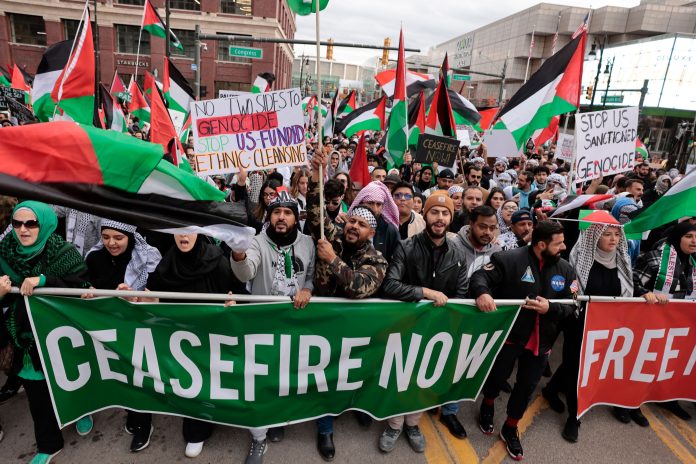A ceasefire between Israel and Hezbollah, an Iran-backed group, took effect at 0200 GMT on Wednesday, following an agreement brokered by the United States and France. U.S. President Joe Biden announced the truce after Israel’s security cabinet approved the deal in a 10-1 vote. The ceasefire is aimed at ending months of hostilities that erupted across the Israeli-Lebanese border in the wake of the Gaza war last year, leaving thousands dead.
Shortly after the ceasefire began, bursts of gunfire echoed across Beirut. While it was unclear whether the gunfire was celebratory or a warning for residents who had missed evacuation alerts from Israel’s military, displaced Lebanese families began their journey back to the south, devastated by months of Israeli airstrikes.
President Biden, addressing the nation from the White House, described the truce as “a permanent cessation of hostilities”, stating that Hezbollah and other militant groups would no longer be permitted to endanger Israel’s security. He outlined plans for Israel’s gradual withdrawal from southern Lebanon over 60 days, with Lebanese army forces assuming control of the border region to prevent Hezbollah from reestablishing its infrastructure.
Meanwhile, Hezbollah has refrained from formally commenting on the ceasefire. However, senior Hezbollah official Hassan Fadlallah stated on Lebanese television that the group supported extending the Lebanese state’s authority but would emerge from the conflict stronger. “Thousands will join the resistance,” he declared, dismissing Israeli efforts to disarm Hezbollah as a failure.
Biden Announces Ceasefire
The deal also received backing from Iran, a key supporter of Hezbollah, as well as Hamas and Yemen’s Houthi rebels. French President Emmanuel Macron called the agreement the result of months of diplomacy involving Israeli and Lebanese officials in collaboration with the United States. Lebanon’s caretaker Prime Minister Najib Mikati and Foreign Minister Abdallah Bou Habib expressed optimism, with Bou Habib confirming the deployment of 5,000 troops to oversee the transition.
Israeli Prime Minister Benjamin Netanyahu, while endorsing the ceasefire, warned of decisive retaliation should Hezbollah violate the agreement. He emphasized that the truce would enable Israel to redirect focus toward threats from Iran and replenish its military resources. Netanyahu claimed the conflict had left Hezbollah severely weakened, stating, “We have set it back decades, eliminated its top leaders, destroyed most of its rockets and missiles, and obliterated years of terror infrastructure near our border.”
In the hours leading up to the ceasefire, violence escalated as Israeli airstrikes targeted Hezbollah’s financial systems in Beirut and surrounding areas, reportedly killing 18 people. Hezbollah retaliated with a barrage of rockets into Israel, while the Israeli air force intercepted several missile launches from Lebanese territory.
The ceasefire, however, has drawn criticism. Israeli Security Minister Itamar Ben-Gvir argued that the agreement failed to guarantee the safety of northern Israeli residents or adequately address the threat posed by Hezbollah. Lebanese officials, meanwhile, insisted on the return of displaced civilians to southern Lebanon as a key component of the truce.

